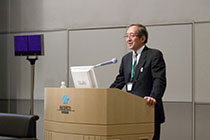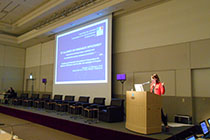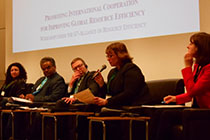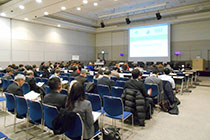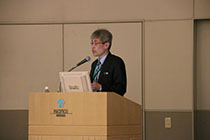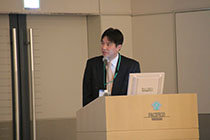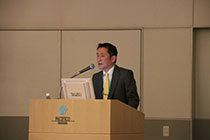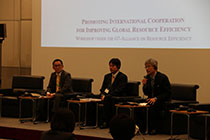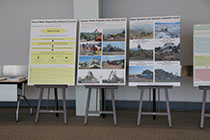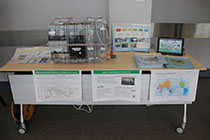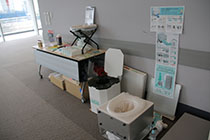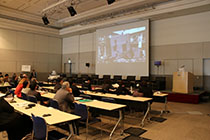- Disaster Waste Management Information Site Top page
- Partnerships & Information-Sharing with International Institutions
Partnerships & Information-Sharing with International Institutions
Archive of technical references related to Disaster Waste Management guideline for Asia and the Pacific
March 11, 2022
Partner Institution: Japan Society of Material Cycles and Waste Management (JSMCWM)
Outline of Archive of Technical references regarding DWM Guideline
Ministry of the Environment, Government of Japan (MOEJ) archived the Disaster Waste Management Guidelines and technical references related to the Guidelines that had been created in previous years. In cooperation with Japan Society of Material Cycles and Waste Management (JSMCWM), the archive is published on the website operated by JSMCWM with the aim of disseminating widely mainly in the Asia and the Pacific.
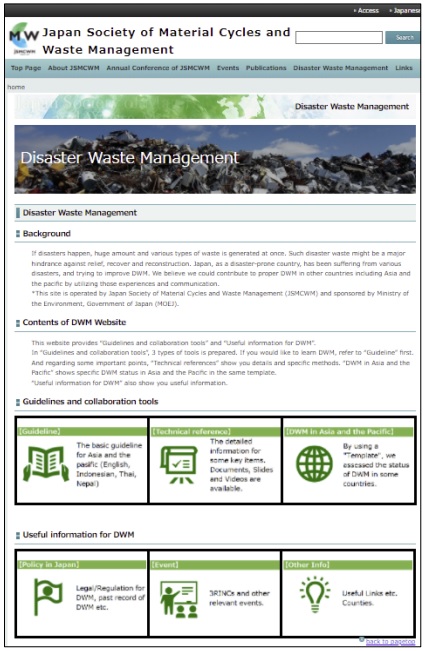
(DWM website by JSMCWM)
2018
October 30, Publication of "Disaster Waste Management Guideline for Asia and the Pacific"
Publication of "Disaster Waste Management Guideline for Asia and the Pacific"
Background
In the "Toyama Framework on Material Cycles" adopted at the G7 Toyama Environment Ministers' Meeting held in May 2016, G7 countries have agreed to assist countries or regions that experience siginificant disasters, such as the global hot spot regions in Asia and the Pacific. Following this agreement, MOE has conducted surveys on disaster risks and disaster waste treatment in countries including but not limited to Asia and the Pacific for identifying challenges and lessons in those countries. The newly published guideline compiles issues to be considered for proper, smooth and speedy treatment of disaster wastes, based on Japanese experiences and countries' needs identified in those surveys.
Overview of the guideline
The guideline targets national and local government authorities in countries that experience siginificant disasters, for their reference in developing policies and plans for disaster waste management. It covers not only post-disaster measures for proper, smooth and speedy treatment of disaster wastes but also pre-disaster preparedness.
<Table of contents>
【1】Disasters in Asia and the Pacific
【2】Disaster Wastes in Asia and the Pacific
【3】Overview of Disaster Waste Management and Planning
【4】Development of Disaster Waste Management Policies
【5】Beyond Disaster Waste Management/Response
Appendix
【A】Case studies of disaster responses in Japan (English summaries)
【B】English version of guidelines on DWM and responses at large scale disasters in Japan
File
- Disadter Waste Management Guideline for Asia and the Pacific
2016
February 22, Public G7 Alliance Workshop on Promoting International Cooperation for Improving Global Resource Efficiency
Disaster Waste Management Seminar at the G7 Alliance Workshop
G7 Alliance Workshop
Ahead of the May 2016 G7 Summit hosted by Japan, a G7 Alliance Workshop on the subject of international cooperation for resource efficiency was convened at the Annex Hall of Pacifico Yokohama on February 22.
Disaster Waste Management Seminar
The Disaster Waste Management Seminar was an opportunity to use the G7 Alliance Workshop to send a proactive message to the international community about how Japan handles disaster waste and the importance of this work. It was a special session of the workshop geared toward G7 government officials who work with waste, as well as other general participants.
A speech by the Japan International Cooperation Agency (JICA) on disaster waste management to improve the reconstruction effort
Video
Documents
Aid in Response to Major Earthquake in Nepal:
April 25, 2015
Partner Institution: Japan International Cooperation Agency (JICA)
Outline of Ministry of the Environment aid for disposing of rubble
The Nepalese government and the United Nations Environment Programme (UNEP) requested technical assistance pertaining to the formulation of disaster waste treatment plans, primarily concerning the reuse of bricks from buildings that were destroyed in Nepal.
- Japan's experience from the efforts of the Japanese government in the wake of the Great East Japan Earthquake, in particular the high rate at which it was able to recycle disaster waste, was extremely helpful.
In addition to cooperation with Nepal, the Ministry of the Environment would like to make an active international contribution in the area of disaster waste management by partnering with such institutions as UNEP and JICA.
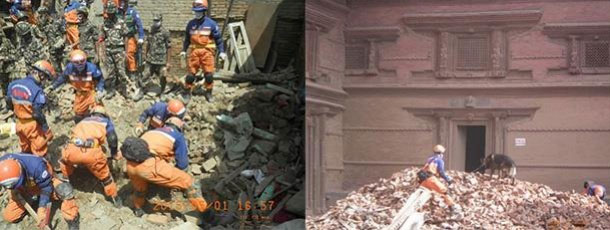
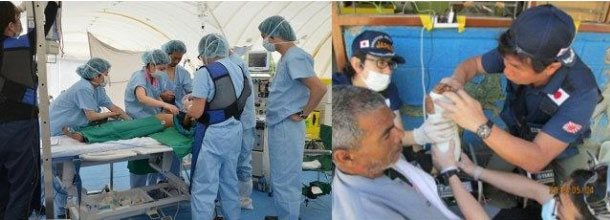
International Symposium on Climate Change and Waste:
June 5, 2014
Partner Institutions: International Environmental Technology Centre (IETC) of the United Nations Environment Programme (UNEP)
In Osaka City on Thursday, June 5, World Environment Day, the International Environmental Technology Centre (IETC), a branch of the United Nations Environment Programme (UNEP), along with the Ministry of the Environment and the Ministry of Foreign Affairs, held the International Symposium on Climate Change and Waste. This event occurred during Osaka City Environmental Month.
Experts from international institutions and high-level government officials from other countries were invited to the symposium. They were presented with the latest trends concerning such matters as: the urgent issues confronting island nations, including climate change; and waste-related issues faced by developing countries undergoing rapid industrialization and the international initiatives to help resolve them. The symposium delivered customized messages on the roles and actions of citizens, companies and local governments.


